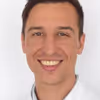Master Assignment
Evaluation, optimization and development of deep learning networks for applications in clinical computed tomography (CT) using 3D printed anthropomorphic phantoms.
Type: Master
Period: TBD
Student: (Unassigned)
If you are interested please contact :
Introduction:
Department of Radiology – Charité Universitätsmedizin Berlin
Deep learning (DL) based tools have high potential to automate radiological reporting tasks and enable more accurate diagnoses. DL networks have been developed for detection, segmentation, classification, and quantitative analysis of tumors in computed tomography (CT) images, among others. Currently, an important challenge is to ensure the reliable functioning of DL tools in clinical applications. For this purpose, it is necessary to 1) develop a better understanding of the influences of clinical CT image quality on the robustness of DL tools, 2) establish methods for quality assurance of DL in clinical application, and 3) improve the robustness of DL networks against quality variations of clinical CT images.
At the Charité Department of Radiology, methods have been developed to produce phantoms that simulate human anatomy and pathology in an extremely realistic manner. These phantoms offer unique opportunities to create comprehensive data sets that systematically capture the influences of clinical imaging on DL network performance. So far, this approach has been used to investigate the effects of clinical imaging quality on the performance of DL networks for segmentation of hepatic lesions and the robustness of quantitative tumor features. Furthermore, the usability of anthropomorphic phantoms to train generative adversarial networks (GANs) for image quality enhancement has been investigated. This work will now be extended in the course of the following projects, each offering the opportunity for a master’s project:
- Evaluation of image segmentation networks using anthropomorphic phantoms
A phantom based approach to investigate the influences of patient morphology and CT scanning parameters (e.g. radiation dose, image reconstruction algorithm, manufacturer) on the performance of networks such as UNets trained for hepatic lesion segmentation has been developed. Next the observed changes in performance will be investigated for clinical significance using explainable DL methodologies. Furthermore, the approach will be expanded to other tissues (e.g. kidney) and network architectures. Finally, methods to improve the robustness of image segmentation methods in CT, i.e. to overcome the observed performance pitfalls will be investigated.
- GANs to improve CT image quality for clinical applications
GANs to improve CT image quality by generating high dose images from low dose input images have been developed. In a next step these GANs will be investigated for their ability to improve quantitative analysis of various tissues and hepatic lesion segmentation. Furthermore, the approach will be extended to train GANs for generating super resolution images and conversion of images between different CT scanner types and manufacturers.
- Comparison of cycle GANs and pix2pix GANs to improve CT image quality using anthropomorphic phantom data
The possibility of working with datasets generated from phantoms allows the analysis of the most sophisticated GANs using different approaches, such as cycle GANs and pix2pix GANs. The first uses unpaired datasets in the task of performing image to image translation, the latter paired ones. Both approaches make the best use of the available data, using appropriate loss functions. Investigating which of these succeeds in creating synthetic images that are not only visually convincing, but also preserve clinical requirements and characteristics, could lead to a better understanding of which architectural choices and training data are required to properly employ GANs in a clinical setting.
The work will take place at the Department of Radiology of the Charité in Berlin and will draw on extensive expertise in radiological image data processing, phantom production, CT imaging, image quality assessment and evaluation of DL networks. The work will be performed in close collaboration with radiologists and computer scientists.
Your Profile
- Degree in computer science or related field (e.g. mathematics, bioinformatics, statistics)
- Experience in machine learning (especially deep learning)
- Solid programming experience (preferably good Python skills)
- Good mathematical understanding and interest in working with medical image data in DICOM format and Deep learning applications
- Creativity, good communication skills as well as an independent and structured way of working
Your Tasks
- Processing and manipulation of DICOM images
- Training, evaluation and optimization of DL networks
- Literature research, scientific writing
- Good command of written and spoken English
Application
Applications including CV should be submitted to paul.jahnke@charite.de.

